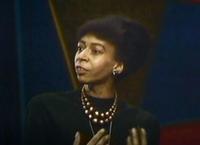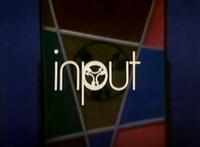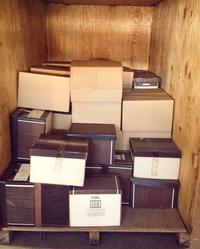You’ve heard the adage that “All politics is local”, but the real, hidden story of American life is documented in the rich and mostly lost bounty of local television programming. For every regional program like Philly’s Bandstand that became a nationwide hit as American Bandstand, there are thousands of farm reports, daffy game shows, children’s television hosts, and political roundtables that are the purest reflection of what mattered to a community of viewers once upon a time.
Most of these programs now only exist as a lonely radio wave floating endlessly towards Alpha Centauri. Many are lost to us because they were live broadcasts made before the age of video recording – but some are the victims of neglect, either through erasing and reusing tapes to save production costs, poor archiving, or changes in video technology that eventually made their master tapes obsolete.
And then there was Marion Stokes.
During her lifetime, the Germantown resident was known in Philadelphia as a civil rights activist, a radical organizer, a librarian, and a producer of the WCAU-TV10 public affairs program Input, a round table discussion program that explored pressing social issues relevant to a late ‘60s/early ‘70s Philly audience – everything from prison reform and women’s rights to the nature of gossip and astrology.
Marion saved every one of the original Ampex 1” videotapes of Input and later had them transferred to Betamax L-500. After her death in 2012, her son donated the tapes to the Internet Archive, where they were digitized. 64 episodes of this unique show can also be found through the Free Library’s database offerings.
Input was unique among discussion shows because it was precisely that—pure discussion. There wasn’t a host or a declaration of a topic at the start of the hour – rather, watching the show is like stumbling on the most interesting people at a cocktail party and lingering to eavesdrop. It’s a time capsule of the lost art of true, interrogative, mutually respectful but unrestrained conversation. As the description on archive.org states, "This footage has not been seen by the public for nearly 45 years and may be the only surviving visual materials of many of these people contemporary to the period of their activism."
Here’s some local counterculture notables who appeared on Input:
Physics professor and COINTELPRO whistleblower William C. Davidon, discussing the possibility of extraterrestrial life:
And here’s law professor and civil rights leader Muhammad Kenyatta, putting forth the case for slavery reparations:
Temple University psychology professor and LGBT activist Dr. John E. Fryer (who lobbied to remove homosexuality from the DSM-II) talks about a new model for community mental health:
And elder rights activist and Gray Panthers founder Margaret "Maggie" Kuhn takes Philadelphia’s city government to task for not addressing elderly citizens’ housing needs:
Marion Stokes’s story didn’t end when Input went off the air in 1971. A few years later in 1977, she bought a home video recorder and taped some local news programs. This was the spark of an all-consuming conviction to document television news, and by the advent of 24-hour news channels, Stokes had up to eight televisions running at all times in her house—recording anything she thought would be beneficial to people who want to be informed citizens. She bought VHS tapes by the dozens in bulk, cut restaurant dinners and family outings short to run home and change tapes, and got up in the middle of the night to record fresh tapes every six hours.
Her archive eventually spilled out of her house into storage units and other properties she owned, and eventually totaled 40,000 VHS and Betamax videotapes. The entire collection was gratefully accepted by the Internet Archive, which is still undertaking the massive effort to digitize and catalog all of them. Many of these tapes are the only record of these broadcasts—even the networks that originally broadcast them often didn’t save them—and so Marion Stokes may have been television’s most important independent archivist.
Do you recognize someone in these episodes of Input? Do you know how they were a part of Philadelphia history? If you spot someone—or even yourself!—leave us a comment below.
Have a question for Free Library staff? Please submit it to our Ask a Librarian page and receive a response within two business days.



